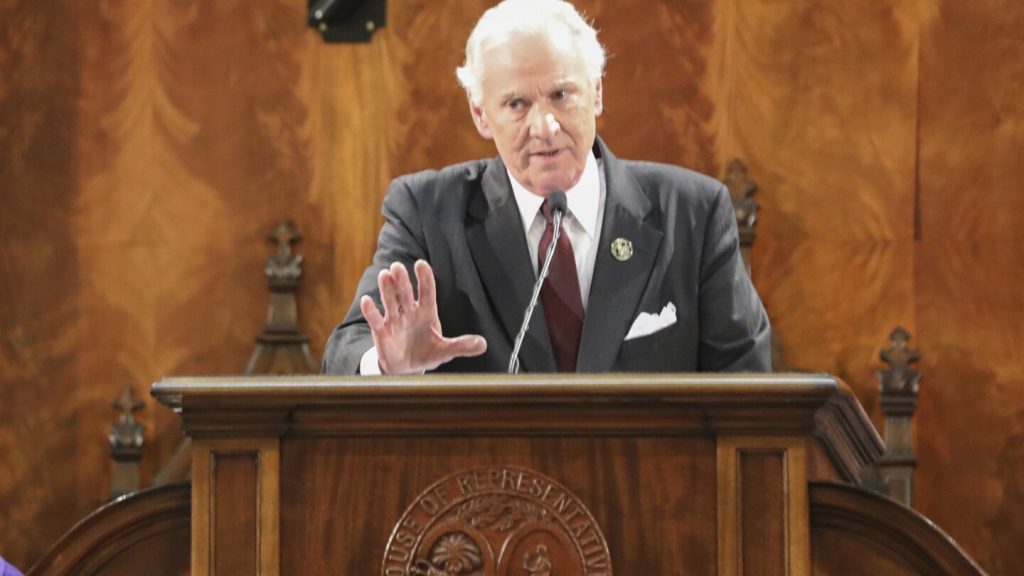South Carolina Governor Henry McMaster is advocating for a thorough review and reduction of the state’s occupational licensing requirements. He believes that the current system creates unnecessary barriers for individuals seeking employment. In his recent State of the State address, Governor McMaster emphasized the need to streamline these regulations to facilitate easier entry into various professions.
South Carolina has over 40 licensing boards that regulate a wide array of professions, including barbers, pharmacists, social workers, cosmetologists, contractors, and realtors. The governor pointed out that the extensive number of boards and accompanying regulations make the licensing process overly complicated and burdensome for many. He stated, “There are regulations that are slowing things down, and we ought to remove them.”
The process of determining which professions require regulation and setting the corresponding requirements is the responsibility of state lawmakers. Once established, licensing boards implement these standards. According to the South Carolina Department of Labor, Licensing, and Regulation (LLR), their mission is “to promote the health, safety and economic well-being of the public through regulation, licensing, enforcement, training and education.”
Representative Jermaine Johnson, a member of the House Labor, Commerce, and Industry Committee, acknowledged the need for a balanced approach. He commented, “I think things that are outdated, we have to review and see if they’re actually necessary, but we also have to make sure we’re keeping the most important parts of these regulations and making sure they apply to 2025 situations.”
Currently, a bill filed by Senator Tom Davis is under consideration in the committee. This bill aims to reduce small business regulations by 25%, reflecting a legislative move towards easing regulatory burdens.
Governor McMaster acknowledged that while certain occupations necessitate strict regulations to ensure public safety and quality of service, others may not require such stringent oversight. He proposed an official study to identify regulations and commissions that may no longer serve a vital purpose. He said, “I ask that we do an official study to see what regulations and commissions exist out there that have no vital purpose, or perhaps even a serious purpose. Some of them, of course, do, but others don’t seem to have very much activity.”
This initiative aligns with recent legislative efforts to reform occupational licensing in South Carolina. In May 2023, Governor McMaster signed the Earn and Learn Act (H. 3605), a bill designed to remove barriers to occupational licenses for individuals with criminal records. The law prevents licensing boards from denying licenses based solely on a prior criminal conviction unless it directly relates to the duties or responsibilities of the occupation. It also bans the use of vague terms like “good moral character” to deny applicants.
Research indicates that steady employment is one of the most effective ways to reduce recidivism. By removing unnecessary licensing barriers, the state aims to facilitate reentry into the workforce for ex-offenders, thereby enhancing public safety. A study from Arizona State University found that states with stricter licensing laws have higher rates of recidivism compared to those with less burdensome regulations.
The push to reevaluate and reduce licensing requirements is part of a broader national conversation about the role of occupational licensing in the modern workforce. Proponents of reform argue that excessive licensing can limit job opportunities, increase costs for consumers, and stifle economic growth. By contrast, appropriate licensing ensures that professionals meet standards that protect public health and safety.
In South Carolina, the debate continues as lawmakers, industry stakeholders, and the public weigh the benefits and drawbacks of the current licensing system. Governor McMaster’s call for a comprehensive review seeks to strike a balance between necessary regulation and economic opportunity, ensuring that the state’s licensing framework serves the best interests of all South Carolinians.
Disclaimer – Our editorial team has thoroughly fact-checked this article to ensure its accuracy and eliminate any potential misinformation. We are dedicated to upholding the highest standards of integrity in our content.





More Stories
Governor McMaster Urges Legislative Review to Simplify South Carolina’s Occupational Licensing
Governor McMaster Urges Legislative Review to Simplify South Carolina’s Occupational Licensing
Governor McMaster Urges Legislative Review to Simplify South Carolina’s Occupational Licensing